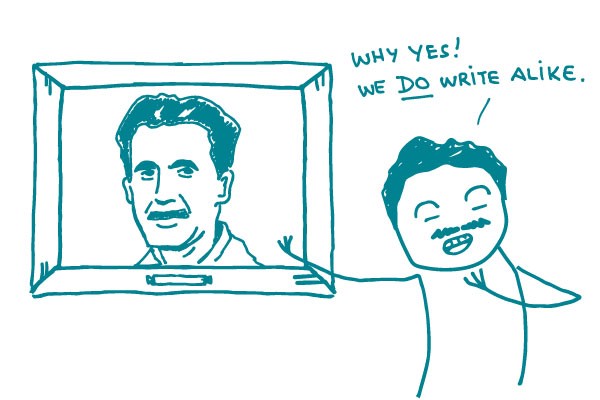
George Orwell wasn’t just the author of that book (or perhaps that other book) you may have read in school. He was also an advocate for social justice, economic equality, and one of the cornerstones of health communication: clear writing.
In his 1946 essay Politics and the English Language, Orwell laid out 6 rules for clear writing:
- Never use a metaphor, simile, or other figure of speech which you are used to seeing in print
- Never use a long word where a short one will do
- If it is possible to cut a word out, always cut it out
- Never use the passive where you can use the active
- Never use a foreign phrase, a scientific word, or a jargon word if you can think of an everyday English equivalent*
- Break any of these rules before saying something outright barbarous
*Just to clarify, Orwell wasn’t saying that the English language is superior — he was knocking writers who like to make their prose fancier by dropping in phrases from other languages.
For Orwell, clear writing wasn’t just about style — it was about ethics. He believed that clear writing was more likely to be truthful and that people often used sloppy or convoluted writing to hide the truth — a belief shaped by the destructive impact of propaganda during the Spanish Civil War and World War II. (Think: “mistakes were made,” instead of “we made mistakes.”)
He also once wrote, “Good prose is like a window pane.” We agree. Given the importance of what we do — helping people understand critical information about their health — we need to write clearly and transparently. You know, like a nice, clean window.
The bottom line: Follow George Orwell’s advice for clear writing and leave the doublespeak out of your health materials.
Browse recent posts